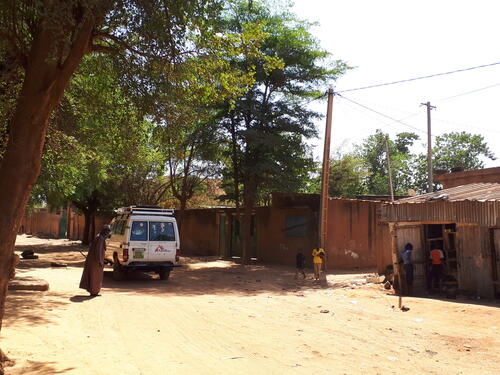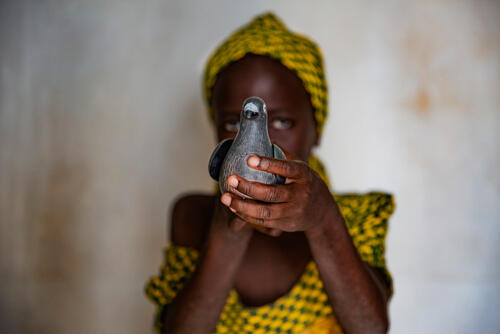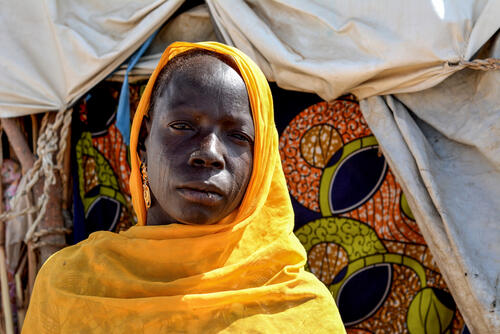After increased insecurity in the Tillabéry region of Niger caused large numbers of people to flee their homes, MSF carried out an emergency response in early January 2019.
MSF deputy head of mission Boulama Elhadji Gori describes the situation.
Why did MSF carry out an emergency response in the rural area of Dessa in the Tillabéry region last week?
A state of emergency was declared recently in the department of Tillabéry, in the region of the same name. Like many other departments in the region, Tillabéry faces many security challenges.
The people living in this border area between Mali and Niger find themselves trapped in violence that comes from two directions: on one side, the community conflict; on the other, the activities of non-state armed groups.
After receiving information about people being displaced in the region, an MSF team visited the immediate area, where they saw first-hand the precarious situation in which the displaced people were living.
We are talking about a total of 1,287 people at three sites within a five-kilometre radius. These people were already vulnerable, having been displaced several times already.
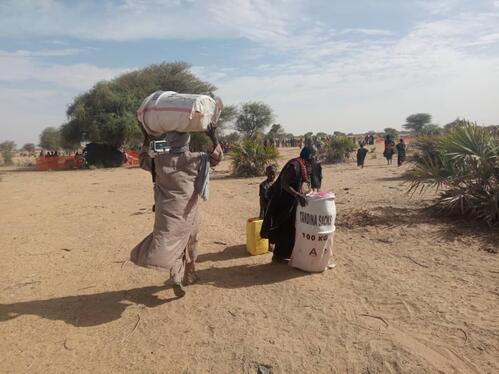
What were people’s main needs?
These people had been forced to leave their homes, their fields and often their animals in order to escape the violence orchestrated by armed groups and other opportunists. Because of the hostilities in the area, basic services such as schools and health centres have been closed.
The displaced people lack shelter, food, healthcare and protection. They are also drinking untreated river water, which brings the risk of various diseases.
Given the urgency of their needs, and in the absence of other humanitarian organisations, the MSF team decided to launch a response.
What did MSF’s response involve?
Our medical team conducted 170 medical consultations, mainly for respiratory infections, malaria, dermatitis and severe malnutrition, as well as 20 antenatal consultations.
We also assessed the nutritional status of children and vaccinated nearly 130 children against measles. Five mental health promotion sessions were organised for approximately 160 people.
Several patients were referred to the health centre for follow-up care, which MSF was also involved in. Our team distributed essential relief items to 220 families, including blankets, cooking utensils, washing kits, mosquito nets and jerry cans.
To make sure that people have safe drinking water, the teams distributed 4,000 water purification tablets, and ran sessions on how to use them.
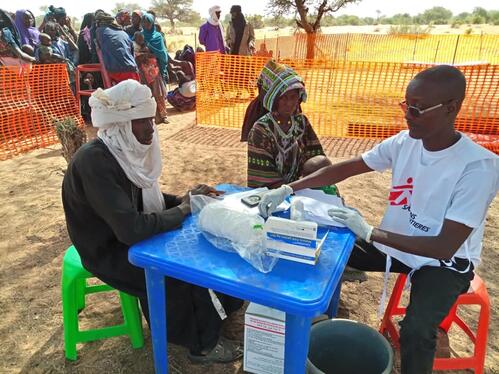
Who are the displaced people?
“Most of the people who fled the violence are women, children and the elderly, of different ethnicities, living in the border area between Mali and Niger. There are also a number of young people who reject violence and want to settle in places that are considered more secure.
The displaced include refugees from Mali and internally displaced people from Niger.
The majority of the displaced people live in fear of being attacked at any time, because of what they have already experienced – their villages being attacked, assassinations, their markets burned down, their animals stolen, and living with the threat of death.
People in this region need food, essential relief items, physical and mental healthcare, clean water, good sanitation and hygiene, and protection.Boulama Elhadji Gori, MSF deputy head of mission
Other than this emergency response, what is MSF doing in Tillabéry region?
MSF has been working in Niger’s Bani-Bangou department, near the border with Mali, since November 2018. Long before the state of emergency was declared, schools, health centres and other social infrastructure were not functioning because of the violence.
MSF is working in the area to ensure access to free quality medical care for displaced people and local communities. We support two health centres and five health posts.
We are also monitoring the situation in other areas which could potentially receive newly displaced people, or where there are needs not covered by other organisations, particularly in the area around Innates. MSF also supports medical services, from health posts to hospitals, in Bani-Bangou and Ouallam.
Our teams work in collaboration with the Ministry of Health. In December 2018, we treated 4,599 people, provided 452 antenatal consultations and assisted 22 births. In addition, 588 children under the age of two received routine immunisations, and 34 women of childbearing age were vaccinated against tetanus. We also referred to hospital seven patients in need of emergency treatment.
What are people’s main needs in this region? And what are the challenges of assisting them?
People in this region need food, essential relief items, physical and mental healthcare, clean water, good sanitation and hygiene, and protection.
The main challenge we face is the climate of insecurity in the region, which can make it difficult to reach the people who need assistance.




